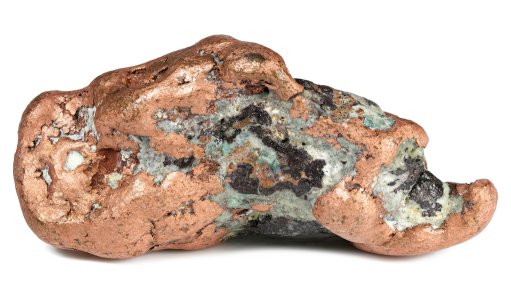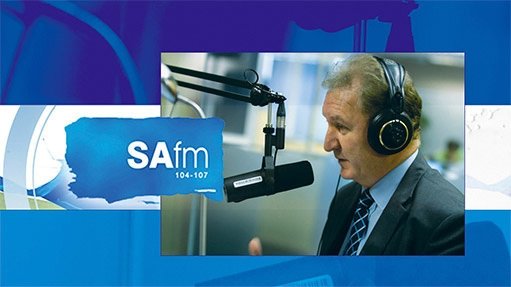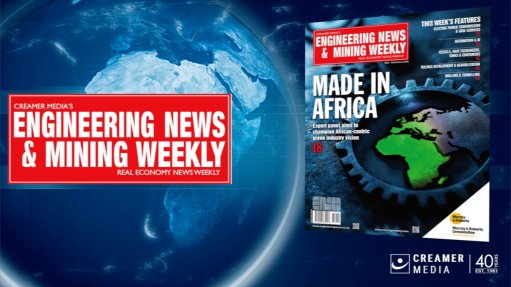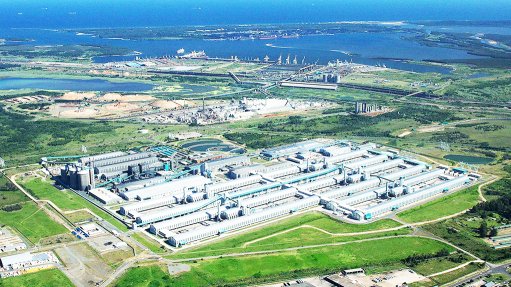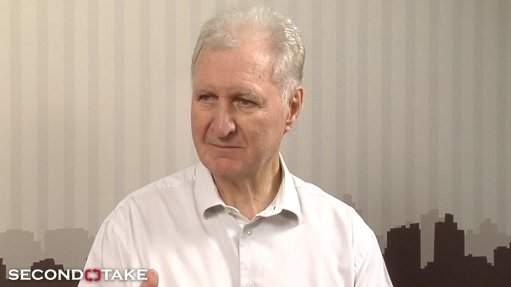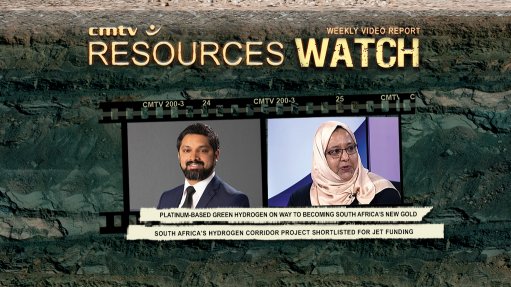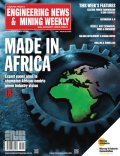How DigiMine is building next generation of tech-savvy, socially aware mining engineers

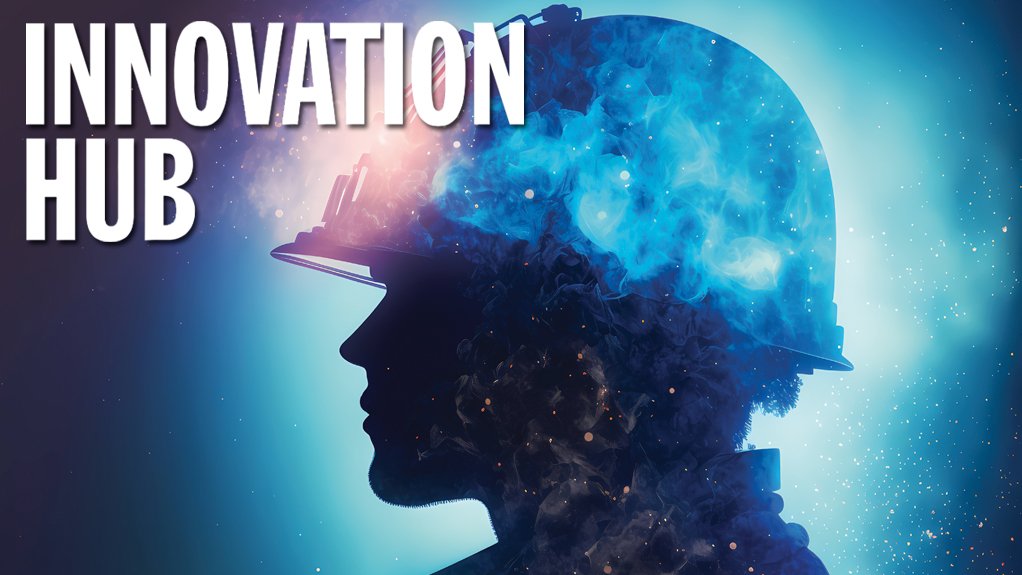
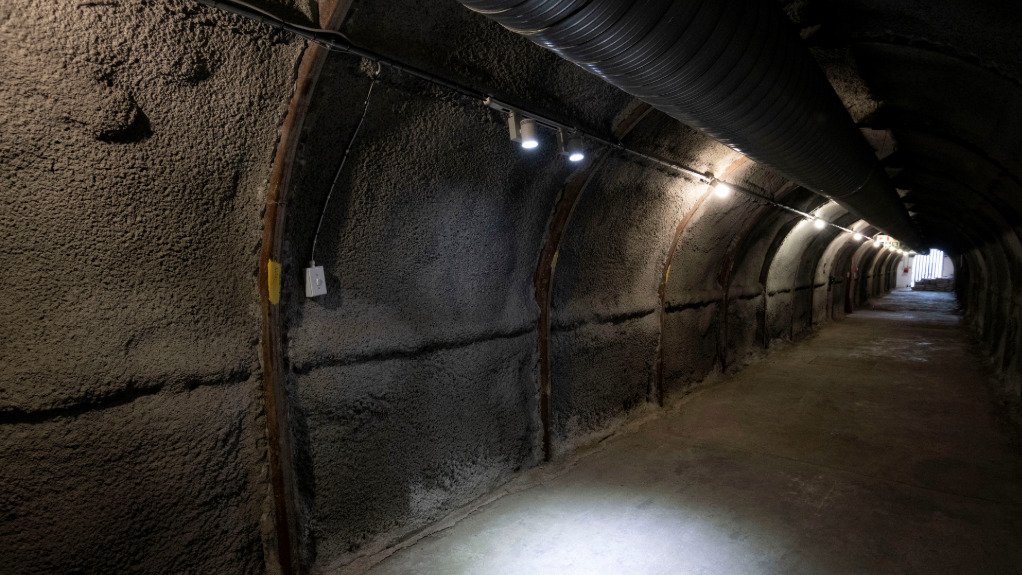
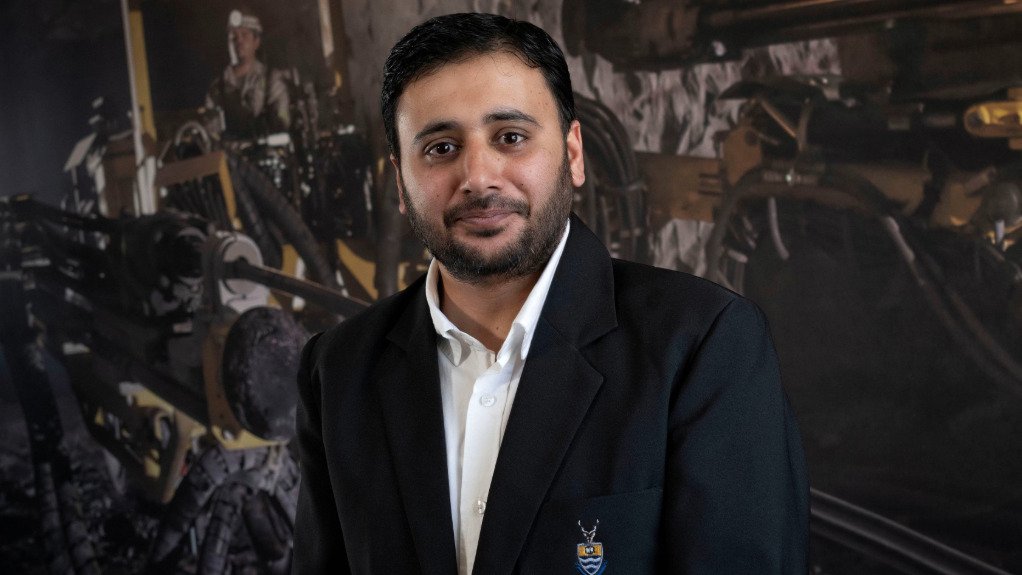
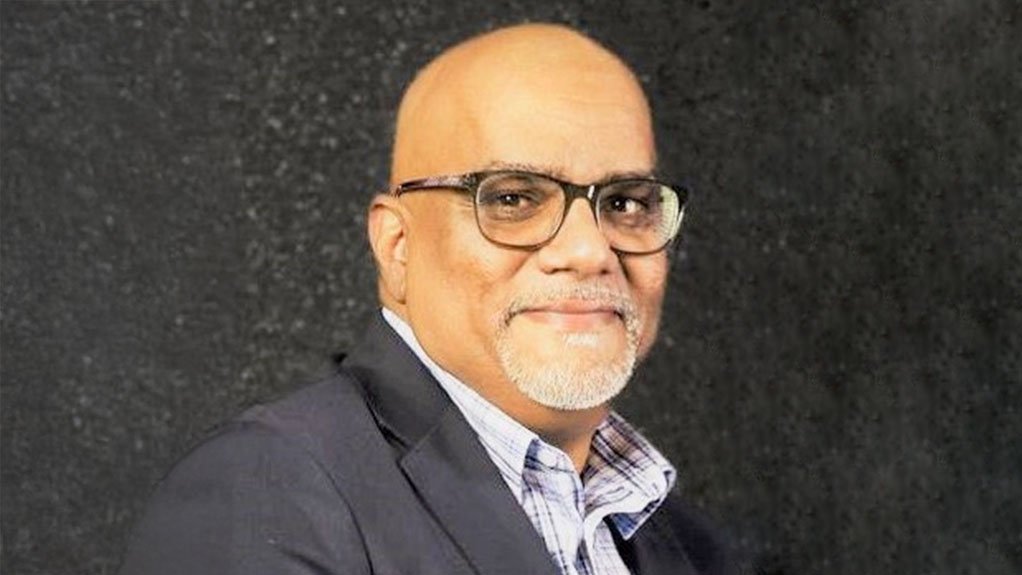

MINING ENGINEERS OF THE FUTURE Given the global competition for resources and professionals, mining education is under pressure to address niche areas and equip graduates with technical expertise and industry-specific skills
DigiMine head Dr Muhammad Ahsan Mahboob
Minerals Council South Africa skills development and human resources head Mustak Ally
Sibanye-Stillwater innovation head Alex Fenn
As the global mining industry increasingly adopts technology, such as AI and automation, partnerships between academia and industry are poised to play a pivotal role in ensuring the continuous professional development of mining engineers.
South Africa produces 200 to 250 mining engineering graduates yearly and Sibanye- Stillwater Digital Mining Laboratory (DigiMine) head Dr Muhammad Ahsan Mahboob says local mining engineering education is globally competitive and highly regarded in the industry.
Nevertheless, he acknowledges that the sector faces a significant shortage of specialised skills in key areas, such as geospatial technologies and geodata analytics, which presents a challenge to the long-term sustainability of the industry.
Given the global competition for resources and professionals, mining education is under pressure to address these niche areas and equip graduates with technical expertise and industry-specific skills.
“As the global mining industry continues to evolve, there is a need to continuously update curricula, particularly in areas such as digitisation, sustainability and Industry 4.0 (4IR) technologies. While the University of the Witwatersrand (Wits), in Johannesburg, which hosts DigiMine, and other institutions are excelling in research and innovation, the challenge remains to scale up the number of trained mining engineers to meet local and international demand,” Mahboob explains.
Minerals Council South Africa skills development and human resources head Mustak Ally agrees, adding that universities and industry have been updating and adapting existing curricula to align with the context of modern mining. Further, institutions have begun incorporating soft and essential skills, such as problem solving, negotiation and decision-making, to align with trends relating to environmental, social and corporate governance (ESG) and sustainability.
“Mining engineers now have to know so much more in the context of ESG and must try and balance this with the technical qualification,” he says.
Mahboob adds that incorporating technologies – such as AI, data analytics and automation – into the research process enables initiatives such as DigiMine to ensure that South African graduates are globally competitive and equipped with the required skills.
DigiMine – the Wits Mining Institute’s (WMI’s) flagship programme – can play an important role in modernising mining engineering education by bridging the gap between academic knowledge and practical skills, further strengthening South Africa’s position in global mining education, he argues.
Background
Launched in 2018 through a strategic partnership between multinational mining and metals processing group Sibanye-Stillwater and the WMI, DigiMine functions as an innovative hub that simulates surface and underground mining environments, providing researchers and students with real-world mining challenges in a controlled setting.
Aligned with global initiatives – such as 4IR and Industry 5.0, which emphasises human-machine collaboration and sustainability – Mahboob says the laboratory prepares students to shape the next wave of technological innovation.
DigiMine’s focus on researching and developing technologies that optimise operational efficiency, safety and security also contributes to the country’s zero-harm and ESG frameworks, promoting more responsible and sustainable mining practices.
The laboratory supports the country’s National Development Plan’s goals for a safer, more productive and sustainable mining industry, Mahboob adds, noting that DigiMine also positions South Africa as a leader in mining innovation across Africa through collaborations with government and the private sector.
“DigiMine ensures that South African mining engineers stay competitive and are able to tackle challenges in this rapidly evolving industry,” says Mahboob.
Since DigiMine’s establishment, Sibanye-Stillwater has contributed R74-million in funding to the initiative, with an additional R13.5-million committed from 2024 to 2026.
The mining company has also donated R50-million worth of technical equipment to Wits’ Faculty of Engineering and the Built Environment, thereby significantly enhancing the university’s capabilities to pioneer “cutting-edge” mining technology research.
Mahboob says the collaboration with Sibanye-Stillwater has led to numerous breakthroughs, including the development of geographic information systems-based real-time monitoring systems for tailings storage facilities, enhanced mine geotechnical conditions monitoring, cost-effective geo-environmental monitoring and wireless communication solutions.
These innovations have significantly improved safety and operational efficiency in underground mining, he adds.
The initiative has attracted other strategic partners, such as the Mine Health and Safety Council, which has funded the design and development of unmanned aerial vehicle systems for mining applications. The partnership has also benefited from support through EU-funded initiatives (MASTERMINE), and a network of national and international technical and technological collaborators.
Moreover, while regulatory and governance frameworks in many mining regions may not yet be suited to support the rapid adoption of advanced technologies, Mahboob says DigiMine’s involvement in fostering dialogues between industry stakeholders and government bodies can play a key role in advocating for regulatory reforms that promote the deployment of new technologies.
Industry Challenges
While South Africa produces a notable number of mining engineering graduates each year, Mahboob points out that structural challenges cause fluctuations in job availability, which prompts some graduates to seek opportunities outside traditional mining roles, such as those in finance and environmental management.
However, a growing emphasis on specialised skills, such as ESG frameworks and digital mining innovations, can help to ensure that graduates capitalise on the opportunities emerging in the field, thereby maintaining the relevance of mining engineering qualifications as the industry continues to transform.
A multifaceted approach – focused on highlighting the industry’s commitment to innovation, sustainability, career growth and its using emerging technologies – can help attract and retain young graduates in the mining sector, Mahboob argues.
“The modern generation of engineers is increasingly drawn to industries where they can make a tangible difference, particularly in areas such as ESG, and health and safety, as well as the adoption of cutting-edge technologies.
“By showcasing the mining sector’s dedication to sustainable practices and its focus on innovation, the industry can appeal to graduates who are passionate about creating positive social and environmental impacts.”
By fostering a work environment that prioritises innovation, sustainability and technological advancement, he adds that the mining sector can position itself as an industry of choice for the next generation of skilled engineers.
Ongoing training and exposure to emerging fields – such as geospatial technologies, AI, data analytics and green energy integration – will, therefore, assist in ensuring the mining sector is perceived as dynamic and future-oriented.
“Overall, through its focus on these critical areas, DigiMine is playing a transformative role in modernising the mining industry. This multifaceted approach will ensure that the mining sector remains competitive in securing young talent, driving the industry’s future with a passionate and capable workforce.”
DigiMine’s focus, coupled with competitive compensation and mentorship programmes, can help retain top talent, says Mahboob.
Ally adds that, while there are gaps, the quality of mining engineering education in South Africa is generally good, with initiatives such as DigiMine being crucial for improving safety, health and productivity in the sector.
Sibanye-Stillwater innovation head Alex Fenn says that, given the mining sector’s inherent complexity, DigiMine’s multidisciplinary approach can help gather together the web of institutional knowledge, bringing together various research components to address mining-related challenges.
The laboratory aims to address these challenges using digital solutions, attracting a diverse range of students beyond the mining engineering field, including electrical and mechanical engineers, data scientists and medical professionals.
Because of its multidisciplinary nature, Fenn adds that DigiMine’s research extends beyond core mining issues to also address ESG aspects, health and wellness.
“DigiMine provides two directional exposures: one being mining to other disciplines, and the second being other disciplines to mining, which is important because young people tend to discredit the role of mining in the local and global economy. DigiMine, therefore, serves as a good lighthouse for how potential postgraduate work can be facilitated.”
DigiMine has produced ten PhDs and 27 MSc students to date, with three PhD and ten MSc students currently enrolled.
Sibanye-Stillwater’s partnership with universities, such as Wits, provides the company with valuable insights into new trends, thereby helping Sibanye-Stillwater keep abreast of technological advances, adds Fenn.
Meanwhile, Mahboob says DigiMine is expanding its focus to include critical areas such as geospatial technologies, energy management, the industrial metaverse and advanced cybersecurity.
“Ultimately, the transformative work being done at DigiMine is setting the stage for long-lasting, positive impacts on the mining industry locally and internationally. We remain excited about the future and are committed to maintaining DigiMine’s role as a global leader in mining education, research and innovation,” Mahboob comments.
However, as Ally points out, mining’s lifeblood, exploration, is important to accommodate the number of qualified graduates coming into the sector.
“We need to grow as organisations and we need to have more mining. We need to remove challenges and blockages in the sector by ensuring, for example, that there is policy certainty. We want exploration to happen, so we need to have systems and processes that are conducive to creating exploration opportunities,” he states, suggesting that education is one of many factors that must be addressed to ensure that the industry remains viable in the long term.
Comments
Press Office
Announcements
What's On
Subscribe to improve your user experience...
Option 1 (equivalent of R125 a month):
Receive a weekly copy of Creamer Media's Engineering News & Mining Weekly magazine
(print copy for those in South Africa and e-magazine for those outside of South Africa)
Receive daily email newsletters
Access to full search results
Access archive of magazine back copies
Access to Projects in Progress
Access to ONE Research Report of your choice in PDF format
Option 2 (equivalent of R375 a month):
All benefits from Option 1
PLUS
Access to Creamer Media's Research Channel Africa for ALL Research Reports, in PDF format, on various industrial and mining sectors
including Electricity; Water; Energy Transition; Hydrogen; Roads, Rail and Ports; Coal; Gold; Platinum; Battery Metals; etc.
Already a subscriber?
Forgotten your password?
Receive weekly copy of Creamer Media's Engineering News & Mining Weekly magazine (print copy for those in South Africa and e-magazine for those outside of South Africa)
➕
Recieve daily email newsletters
➕
Access to full search results
➕
Access archive of magazine back copies
➕
Access to Projects in Progress
➕
Access to ONE Research Report of your choice in PDF format
RESEARCH CHANNEL AFRICA
R4500 (equivalent of R375 a month)
SUBSCRIBEAll benefits from Option 1
➕
Access to Creamer Media's Research Channel Africa for ALL Research Reports on various industrial and mining sectors, in PDF format, including on:
Electricity
➕
Water
➕
Energy Transition
➕
Hydrogen
➕
Roads, Rail and Ports
➕
Coal
➕
Gold
➕
Platinum
➕
Battery Metals
➕
etc.
Receive all benefits from Option 1 or Option 2 delivered to numerous people at your company
➕
Multiple User names and Passwords for simultaneous log-ins
➕
Intranet integration access to all in your organisation










